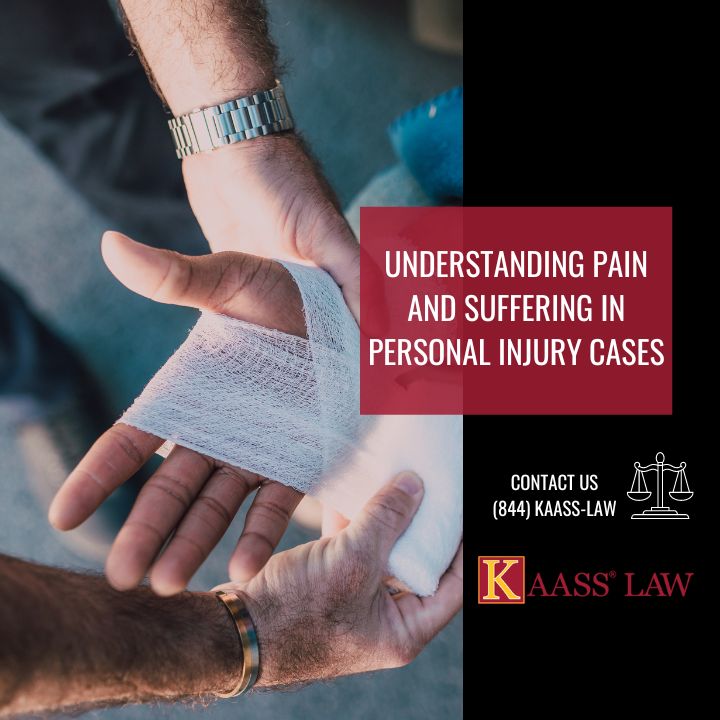Not only are personal injury cases legal disputes, but they also tell stories of human suffering, resiliency, and the pursuit of fairness. Pain and suffering are complex phenomena. They extend beyond physical harm to include emotional distress, mental anguish, and a reduction in one’s quality of life. These cases revolve around the idea of pain and suffering. In-depth analysis of the complexities surrounding pain and suffering in personal injury cases is provided in this thorough examination. It also sheds light on the difficulties associated with measuring it and the quest for justice for those who have suffered the consequences.
Loss of Earnings
Fractures, cuts, or traumatic brain injuries are frequently the physical signs of pain within personal injury cases. Examples of chronic pain conditions that can seriously impair a person’s quality of life and ability to perform daily tasks are back injuries and nerve damage. Constant physical discomfort can have an impact on one’s wellbeing and quality of life. It is experienced at times other than right after an injury.
Subjective and Objective Aspects
Because it is subjective, calculating pain and suffering in personal injury cases can be very difficult. While lost wages and medical costs have a clear financial value, pain and suffering involve intangible losses that are challenging to measure precisely. A nuanced approach that takes into account medical evidence, expert testimony, and qualitative assessments of the individual’s experiences is necessary due to the subjective nature of pain and suffering.
Legal Aspects
Cuts, fractures, and traumatic brain injuries are examples of physical pain symptoms that are common in personal injury cases. Back injuries and nerve damage are two examples of chronic pain conditions that can significantly reduce a person’s quality of life and capacity to carry out daily tasks. Persistent physical discomfort can have a negative effect on one’s overall health and quality of life. One does not always feel it immediately following an injury.
Cultural and Societal Factors
Culture and society’s perceptions of suffering and pain can affect the process of quantification. That in turn affects attitudes toward justice and compensation. Depending on cultural differences in the expression and interpretation of pain, there may be differences in the understanding and valuation of pain and suffering in legal contexts. Pain and suffering calculations are complicated because of societal perceptions of frivolous claims, litigiousness, and attitudes toward personal injury litigation.
Legal Recourse and Representation
People who have suffered personal injuries have the right to file a lawsuit. They can get compensation for their losses, and hold those responsible for their actions accountable. Competent personal injury attorneys tirelessly pursue equitable and proper compensation for their clients as their advocates. Through legal representation, victims of personal injury have access to information, resources, and support that empower them to fight for justice and stand up for their rights.
Comprehensive Compensation
Damages for pain and suffering in personal injury cases can include a variety of items. That includes medical expenses, lost wages, psychological distress, and a decline in quality of life. Courts consider both the long-term consequences of the injury and the entirety of the plaintiff’s losses when determining the appropriate amount of compensation. Acknowledging the full extent of the individual’s suffering, just and comprehensive compensation provides them with the means to rebuild their lives and proceed with honor and resiliency.
The Human Dimension
There is a human story, a tale of suffering, pain, and resiliency behind every personal injury case. Victims of personal injury are people with hopes, dreams, and aspirations; they are not just cases or statistics. An appreciation of the human aspect of personal injury cases leads to the development of empathy, compassion, and understanding; these qualities in turn motivate efforts to guarantee that victims receive the assistance and recompense to which they are legally entitled, as well as due process. It is imperative to recognize that every case has a human element. It requires our undivided attention and thoughtfulness since it represents an individual with a unique background and experience.
The stories of people who have suffered personal injuries frequently include overcoming great challenges, enduring agony on both a physical and mental level, and navigating intricate legal systems. These are not merely legal battle stories; they are tales of survival and fortitude. It’s important to recognize the bravery and strength of those who endure under such trying conditions.
In addition, the effects of a personal injury go beyond the victim to include their friends, family, and community. An injury can have far-reaching consequences on relationships, financial security, and general well-being. We respect the interdependence of human experiences and the value of empathy and support by acknowledging the human aspect of personal injury cases.
Contact Personal Injury Attorneys
In cases of personal injury, pain and suffering are actual experiences. They have an impact on the lives of the injured parties. Also, it affects their loved ones. Let us endeavor to guarantee that every individual receives the proper degree of decency and respect. By doing this, we uphold the principles of justice and ensure that those who have suffered receive the support and recognition they need in their pursuit of healing and closure. We preserve justice and uphold the inherent worth and dignity of each and every person affected by these situations. We achieve it by appreciating the human stories told in personal injury cases. Call KAASS Law at 844.522.7752

